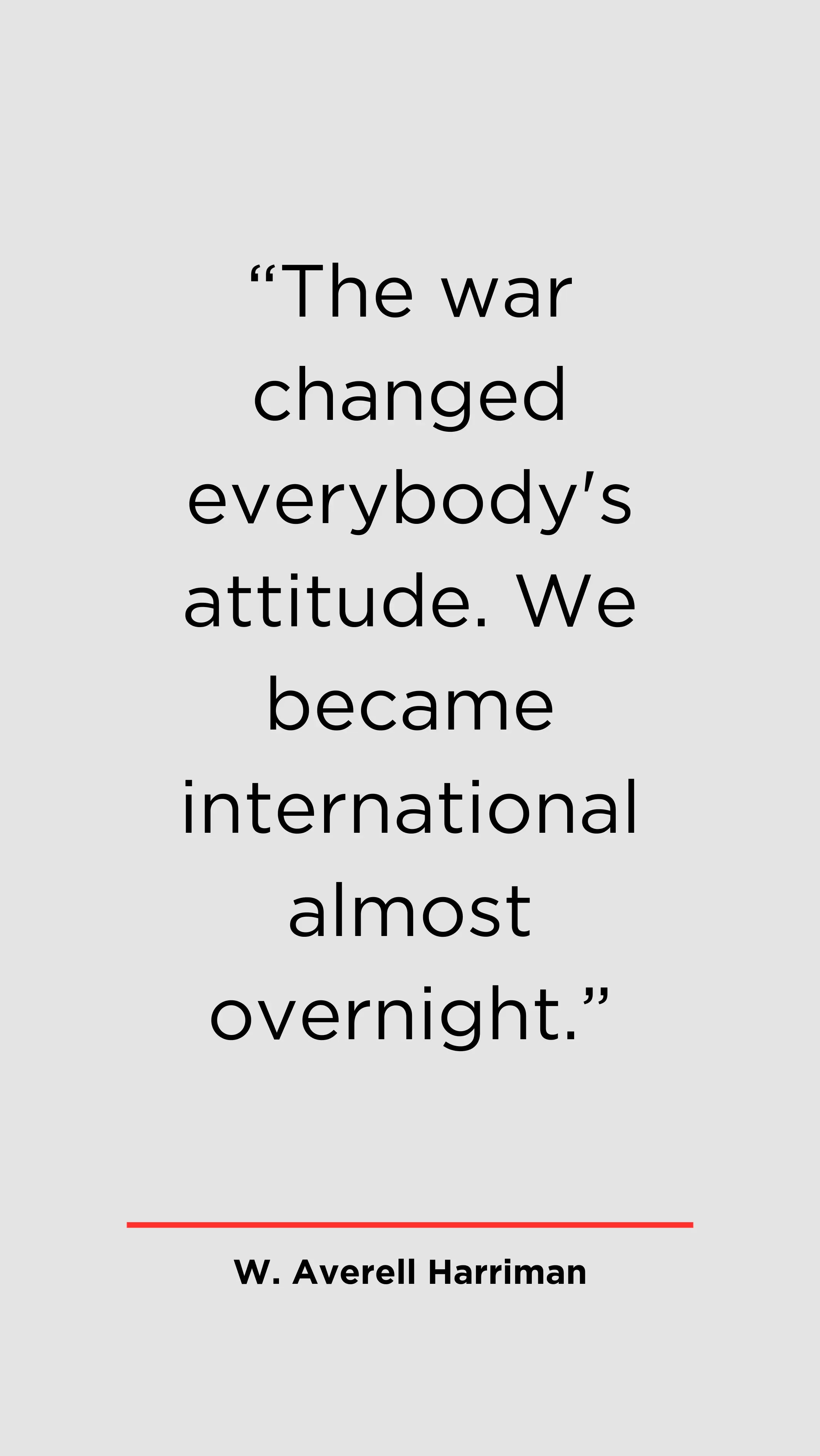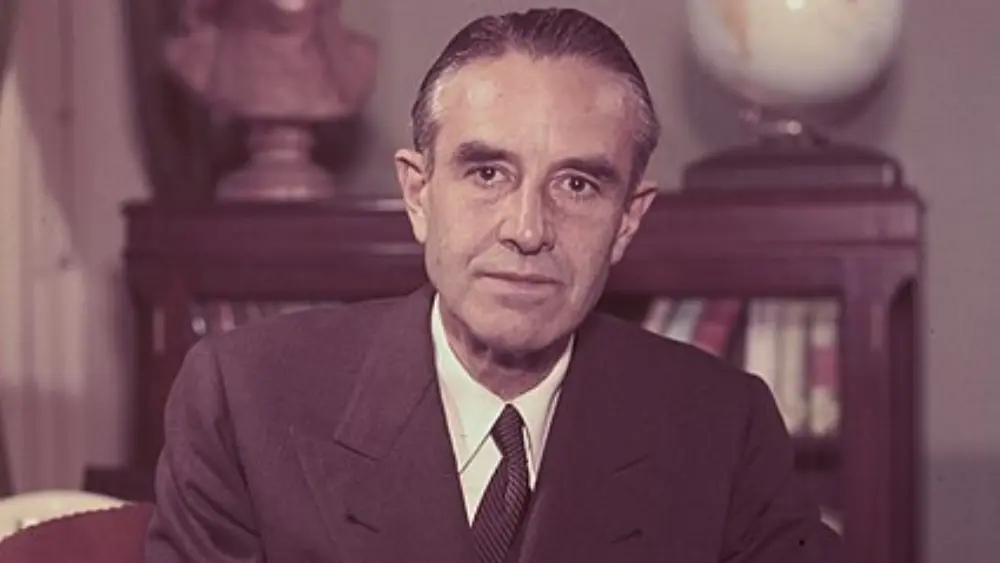History often celebrates the generals, presidents, and soldiers who shaped the outcome of war. But in the background, there are figures like Averell Harriman, who didn’t carry a rifle, but whose negotiations, strategic insight, and connections influenced the course of history just as deeply. As someone who spent a considerable amount of time studying U.S.-Soviet relations during the Cold War, I found Harriman’s story to be a compelling reminder of how diplomacy and war are intertwined.
From Railroads to the Roosevelt Administration
William Averell Harriman wasn’t your typical statesman. Born into immense wealth as the son of a railroad tycoon, he could have easily spent his life as a financier. Instead, he chose to enter the heart of U.S. foreign policy during its most volatile moments.
In 1941, as Europe was being consumed by war, President Franklin D. Roosevelt appointed Harriman as Lend-Lease envoy to Britain and the Soviet Union, overseeing U.S. military aid to the Allies. This wasn’t just about logistics — it was about building trust with powers whose ideologies didn’t align with America’s.
“I came across Harriman almost by accident while researching the dynamics of the U.S.-Soviet alliance during WWII. It was striking how one man seemed to be in all the rooms where critical decisions were being made.”
The Man in Moscow
In 1943, Harriman became the United States Ambassador to the Soviet Union. This was no easy post. With Joseph Stalin ruling with an iron fist and suspicion running high, Harriman’s job was to balance support, caution, and negotiation.
He attended the Tehran and Yalta Conferences, standing beside Roosevelt, Churchill, and Stalin as they debated the shape of the postwar world. While generals planned operations like Overlord, Harriman was securing strategic alignment with the USSR, often navigating Stalin’s paranoia and Roosevelt’s optimism with seasoned tact.
“The more I read about Harriman’s time in Moscow, the more I realized how crucial his presence was. He wasn’t just translating policy but managing relationships that affected every American soldier fighting overseas.”
The Cold War’s First Battles
After the war, Harriman’s role didn’t diminish. He became Ambassador to the United Kingdom, then later Secretary of Commerce, and eventually a key architect of the Marshall Plan, which helped rebuild Europe and contain the spread of Soviet influence.
Veterans of WWII may especially appreciate Harriman’s stance during the early Cold War. He was no naïve peacemaker. Harriman was one of the first American officials to warn about Soviet expansionism, challenging early assumptions that Stalin could be trusted to maintain peace.
“What surprised me most was Harriman’s transformation from a wartime collaborator with the Soviets to one of the firmest voices warning about their ambitions. It wasn’t a political shift — it was a realization born from close contact with the regime.”
An Operator Between Worlds
Harriman’s unique value lay in his ability to move effortlessly between government, finance, and diplomacy. As a veteran of Wall Street and the railroads, he understood logistics, money, and power. As a diplomat, he knew how to listen, observe, and influence without barking orders.
He was also a key player in back-channel diplomacy — that often overlooked but vital arena where wars are avoided or prolonged, and where national strategy takes shape without press releases or parades.
“Studying Harriman helped me understand how international relations work behind the curtain. He didn’t wear a uniform, but he was in many ways fighting his war — a battle for influence, intelligence, and direction.”

Governor, Elder Statesman, and Cold War Strategist
In the 1950s, Harriman briefly turned to domestic politics, serving as Governor of New York and later running for the Democratic nomination for President. Though unsuccessful in that bid, he continued to shape U.S. foreign policy under Presidents Kennedy and Johnson. He focused particularly on Vietnam and arms control negotiations with the Soviets.
Even late in life, Harriman remained a respected voice in Democratic foreign policy circles, representing a generation that had witnessed — and shaped — the 20th century’s great conflicts.
A Legacy Soldiers Can Respect
For war veterans, the story of Averell Harriman might not be as familiar as those of Eisenhower, Patton, or MacArthur. But his contributions were no less vital. He worked the corridors of power to secure alliances, avoid catastrophes, and position America to win not just battles, but the geopolitical struggles that followed.
“Learning about Harriman gave me a new perspective. As someone who respects military strategy, I couldn’t help but admire the strategic patience and clarity he brought to diplomacy. He fought on a different front, but one that demanded equal courage.”
The Diplomat as a Warrior
Averell Harriman reminds us that winning wars requires not only bullets and bravery but also negotiation, insight, and the ability to read people and situations in high-stakes environments. His life is a study in civilian leadership under wartime pressure, and how diplomacy, when done right, can serve as the ultimate weapon of peace. Harriman’s work reveals the other battles that any veteran who has seen firsthand the price of conflict fights quietly — the ones that kept the world from plunging even deeper into chaos.











